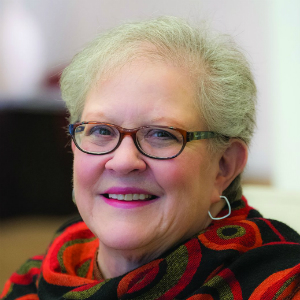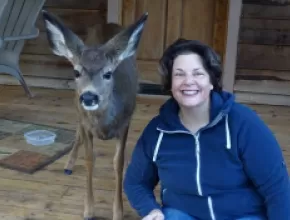I reached out to meeting planners and others in our industry about what worries them most.
The 2019 Meetings Today Trends Survey was conducted before the U.S. government shutdown that impacted many meetings, hotels, air travel and safety.
Comments about a lack of respect and a lack of desire to learn were interesting.
Those I shared the above link with and asked to comment are, alphabetically:
Sekeno Aldred, Director of Events and Sponsorship,
Goodwill Industries International, Years in the Hospitality: 22
John A. Erickson, Principal, Employee,
JAE Consulting & Recruiting, Adjunct Professor at multiple schools,
Years in Hospitality: 54, Email Contact: johnaerickson@icloud.com
Zoe Moore, Founder/CEO, LB Alliance, Years in Hospitality: 4,
(In addition, Zoe was in the Army for 12 years, 2 years reserves, 10 years active, 2 tours in Iraq. She now works as a city leader with Bunker Labs, a nonprofit for Veteran entrepreneurs)
Email contact: info@lotusbaseline.com
Q1. What do you read into the comments?
What worries you based on your years of experience?
Sekeno Aldred (SA): I worry that the meetings industry will not have a big enough impact to drive change unless we look inwards. How a meetings team is structured within the organization can have a long-term impact on how meetings are designed and executed.
At my organization, the events team is structured under leadership and learning which allows us to elevate all the conversations we have around design and execution to one that always has a leadership and learning lens. The diverse conference participants that attend my event support multiple populations all with differing needs. They, like many other conference attendees for other organizations, are on the front-lines for the communities they serve and we need to foster and facilitate impactful leadership and learning that is not status quo.
John A. Erickson (JAE): The continued concern by planners that people do not value what they do is a major concern of mine. Many of the comments in the article addressed the lack of understanding what a meeting/event planner does, and the level of knowledge required to accomplish the job.
As a person who has worn many hats in the industry, on both sides of the equation for meeting/event execution, I am concerned that the quality of planning does not speak to the knowledge required to stand out as a vital asset for an organization.
Educating your client on what you bring to the table, and the resulting bottom line effect, is a major part of what a planner does. It should not be to justify why they have you around.
Educating others about what and how you do something is a part of business planning, strategizing, budgeting, and developing an organization. When you lead the planning for an organization you provide tangible results for cost control and profitability.
Zoe Moore (ZM): What worries me the most is the lack of supplier diversity and succession plan. First, the industry has a clique mentality often rotating the same vendors, service providers and suppliers, event after event, year after year, remaining stubborn about giving opportunities to under-represented professionals seeking opportunities to grow their careers and businesses.
Second, the industry is overwhelmingly represented by women of European descent averaging 45-50 years of age. Along with their male counterparts there seems to be little thought to how the industry is evolving and the creative value that younger generations provide.
With both concerns is the importance of inclusion, what it means beyond event design and how it impacts leadership and who gets access to resources and opportunities.
Q2. Where do you think the issues of worry are on staff and staffing of the service industry with the increase of robots versus people? The fewer number of immigrants, in food service in particular, to staff? The diversity lacking in the front line of our industry?
SA: Learning happens in so many ways and even the smallest interactions we have with all people involves learning. The thought of robots versus people would further reduce what we learn about each other, erode the human connection and empathy we have for one another.
JAE: Staffing by meeting locations is a concern, more for the service provider, than for the meeting/event planner. But I would address the expectations of service levels in any contract.
ZM: The hospitality industry is a people-driven industry that can't be executed with robots. Technology will improve efficiency but never replace the value of how human interaction influences the ROI.
The fewer number of immigrants has more to do with the lack of fair treatment/pay and people feeling empowered to start their own businesses and excel within their careers.
Staff make events possible and those in leadership failing to recognize their value will further decrease the resource pool.
Inclusion and Diversity (I&D preferred versus D&I in the old thinking) needs to take place on the front lines of associations and organizations providing professionals’ education and certifications. As long as we mask efforts under the umbrella of “event design”—and not address the core reasons why people feel under-valued—then our industry will remain on a perpetual cycle of unsustainable efforts that aren't measurable.
Q3. What will change how we address bigger issues that impact our world? Should we worry and/or simply prepare differently?
SA: There are two ways our industry and event planners can address bigger issues that impact our world. First, we need to embrace continuous learning.
As we advocate for our own conference attendees to learn and make connections, we need to make it happen for ourselves. We need to understand how we fit into the larger picture and how our work can be an extension of our greater purpose. Secondly, using a logic model to see how an event planner or team can address global issues can become a useful tool.
A logic model allows you to walk through team priorities to include mission and vision, what you hope to achieve, change or impact and what is needed to support the work.
As a part of working through my own logic model, my own team updated our vision statement to ‘We Catalyze Conversations to Change the World.” This vision statement was generated by our desire to address big issues focused around civic, economic and environmental issues.
One might think that sounds quite aspirational; however based on our team values we know change happens one person at a time that includes ourselves, our broader team, our conference attendees and the people’s lives they touch every day.
At the end of the day anyone or group of us can be the change agent or maker. And so for my idea of my events team address the bigger issues that impact our world, it seem less aspirational and more a reality as we seek and facilitate solutions.
Revisiting our logic model to inform our event designs or areas of focus for addressing big issues that impact seems more attainable and realistic.
JAE: The bigger issues that impact our world is better addressed by each individual taking it upon themselves to vote and participate in the governance of our country. We each have the responsibility to be active in the decisions that affect our way of life.
ZM: Worrying is like a rocking chair: it will give you something to do but get you nowhere.
Change is made when funding in associations is allocated to collect data that can be assessed to determine how benchmarks which reflect the lack diversity in the workforce and leadership throughout the industry impacts ROI, efficiency and succession.
Then we can implement measurable objectives to make impactful differences.
[Read This Next: Meetings Trends (We've Only Come This Far?!)]
Click here to view additional content in the 02.01.19 Friday With Joan newsletter.







